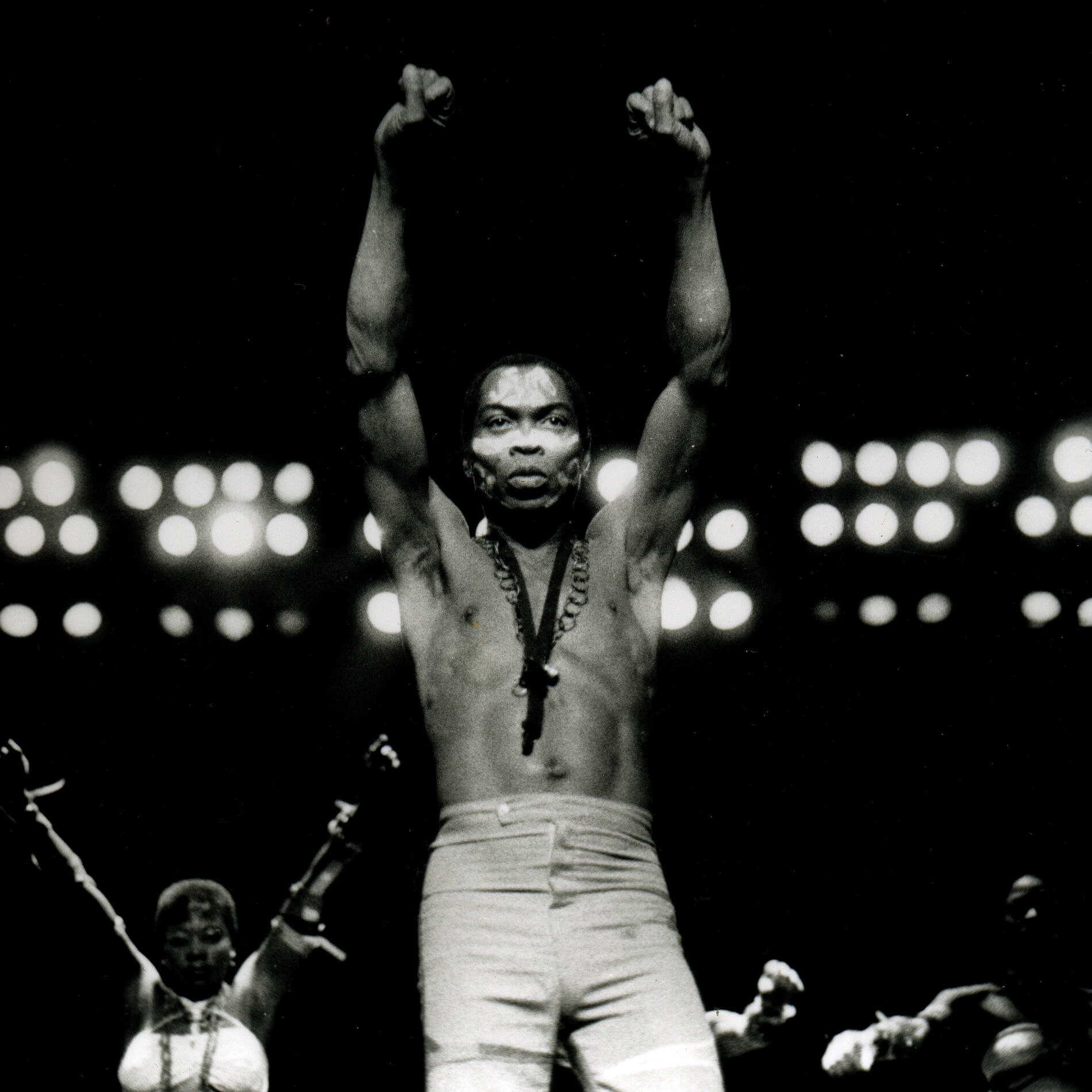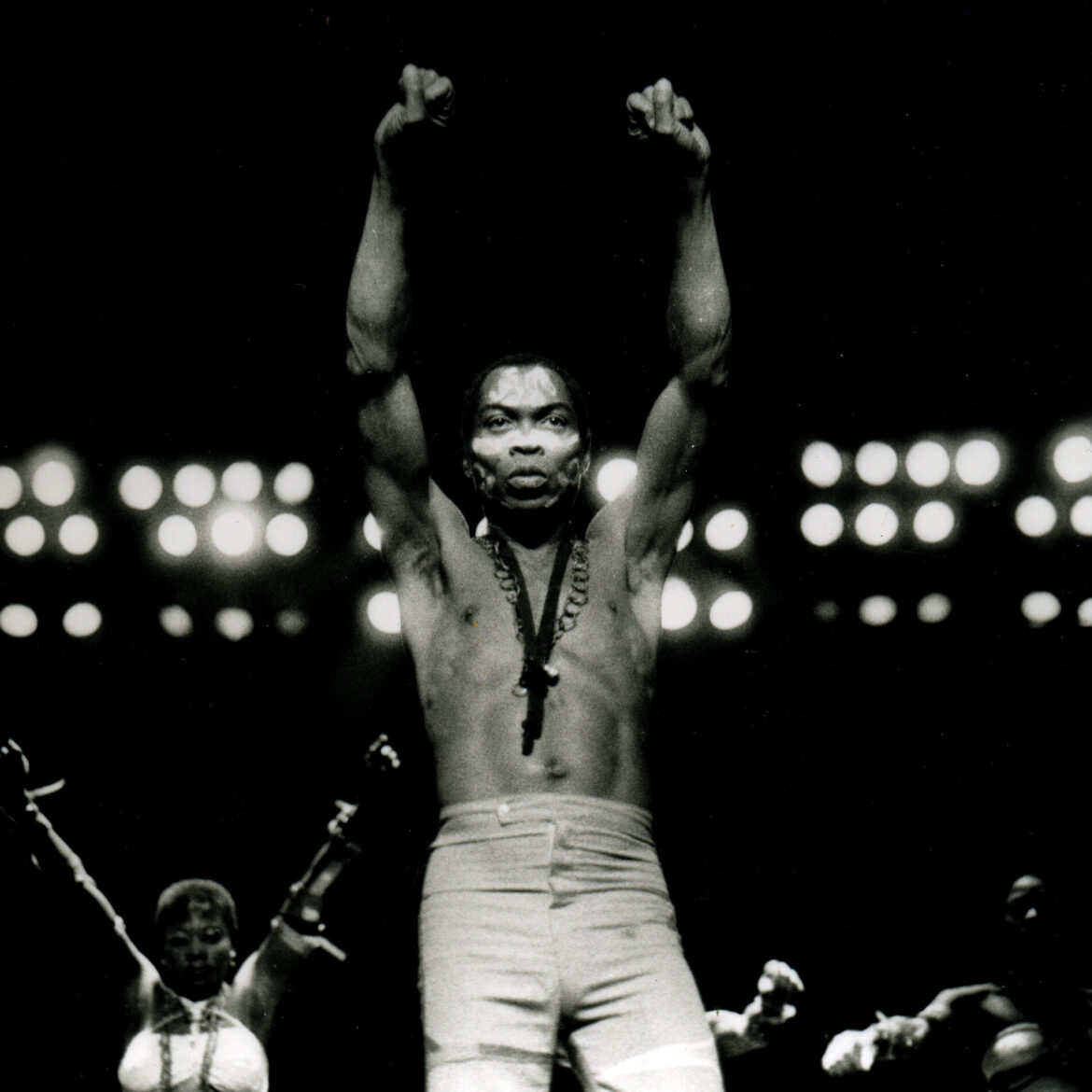Listeners:
Top listeners:
-
 play_arrow
play_arrow Cosoro Afrobeats UK's No.1 Afrobeats Radio Station
Made Kuti Opens Up: ‘Fela Was More Celebrated Abroad Than in Nigeria’

Afrobeat musician Made Kuti, grandson of the iconic Fela Anikulapo-Kuti, has shed new light on the complex and often contradictory legacy of his grandfather in Nigeria. In a recent interview, the Grammy-nominated artist reflected on how Fela, now a global symbol of African resistance and musical ingenuity was far more appreciated abroad than in his homeland during his lifetime.
Fela Kuti wasn’t just a musician; he was a revolutionary. Through his pioneering of Afrobeat, Fela fused traditional Yoruba music, jazz, highlife, and funk into a potent vehicle for political activism. Songs like Zombie, Sorrow, Tears & Blood, and Coffin for Head of State openly condemned Nigeria’s military regimes, colonial hangovers, and systemic oppression.
But this defiance came at a cost. Fela was arrested over 200 times, his Kalakuta Republic raided, his mother fatally injured by soldiers, and his image systematically demonized by state propaganda. He was portrayed as a drug-addicted, immoral nuisance, particularly to the rising Nigerian middle class, who often viewed him as an embarrassment rather than a hero.
Made’s comments highlight how this public narrative shaped not just Fela’s legacy, but the lives of those who carried his name. The 28-year-old recounted how his father, Femi Kuti, also faced harsh judgment simply for being a “Kuti.”
“I remember my dad telling us about how he couldn’t even date girls because the fact that he was a Kuti was a major red flag,” Made shared. “They looked down on him because at the time, Fela was not seen as someone who was financially successful.”
While Nigeria questioned Fela’s worth, the world embraced him. From sold-out concerts in Europe to rave reviews of the Broadway musical FELA!, his revolutionary music and fearless message found resonance with global audiences who viewed him as a voice of the oppressed and an architect of Afrocentric pride.
International accolades, including posthumous honors and exhibitions, have often highlighted Fela’s influence more than national institutions. The irony is striking: a man who fought for Nigeria with his art was only truly revered once he had already been immortalized abroad.
Made also addressed the misconception that Femi Kuti’s success came easily due to Fela’s legacy. Indeed, Femi’s own career has been a result of tireless work and innovation—building the New Afrika Shrine, founding Positive Force, and earning multiple Grammy nominations. He carved out his path in a world still divided over what the Kuti name represents.
Today, Made Kuti represents the third generation of the Kuti dynasty, carrying forward the Afrobeat torch while pushing the genre into new, global spaces. A skilled multi-instrumentalist and politically conscious songwriter, Made’s recent Grammy nomination alongside his father marked a historic milestone for the family.
But his mission goes beyond music. Through interviews like this, Made is also rewriting the cultural narrative around his grandfather, not just as a musical pioneer but as a misunderstood national figure who challenged power at great personal cost.
In present-day Nigeria, Fela Kuti is celebrated annually during Felabration, his face adorns murals and merchandise, and his influence is cited by artists across genres. Yet, as Made points out, full societal reconciliation with his radicalism is still a work in progress.
His comments serve as a reminder that legends are not always loved in their time—especially when they challenge power, confront hypocrisy, and refuse to conform.
Written by: Adedoyin Adedara
Fela Kuti FEMI KUTI Kuti's MADE KUTI
Similar posts
Recent Comments
No comments to show.
Copyright © 2025 Cosoro Radio | All rights reserved













